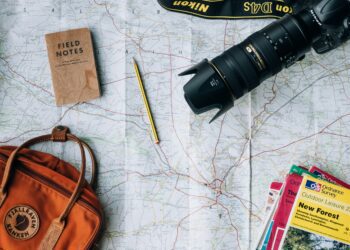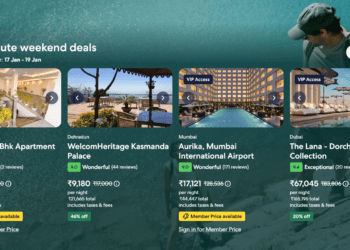When you’re planning your next trip, it’s important to be aware of the common travel problems and how to avoid them. From cancelled flights to lost luggage, these can all lead to a frustrating and expensive trip. In this blog post, we will teach you six ways to prevent common travel problems and make your trip as smooth as possible. From understanding your airline’s policies to packing the right tools, read on to learn everything you need to make your next trip go as planned.
Planning for a trip
There are a few important things to keep in mind when planning your trip. Make a list of what you want to see and do, and make sure you have estimated travel costs. You may also want to consider the time of year you are traveling, as conditions can vary greatly by season.
Pack carefully – not only will this minimize packing anxiety, but it will also save you space in your luggage. Try to pack as lightly as possible by bringing along essential items such as water bottles and underwear.
Be flexible – no matter how much research you do, there is always something that will go wrong on your trip. If something unexpected comes up, don’t stress – just adjust your plans accordingly!
Make friends with locals – they will be more than happy to answer any questions and help plan your trip. In addition, many tourist spots offer free admission for residents of the area during designated times of the day or week.
Dealing with travel anxiety
Travel anxiety can be a debilitating experience for anyone, but it’s particularly troublesome for those who have difficulty coping with stress in general. Here are six tips to help you deal with travel anxiety:
1. Make a list of your goals for the trip and be sure to write them down so that you have something to focus on. This will help take the edge off your anxiety and make the trip more enjoyable.
2. Prepare yourself mentally by thinking about the fun things you’ll be doing while on your trip and focusing on the positive aspects of each destination.
3. Avoid over-preparing or obsessing about your travel arrangements. A little bit of luck and good timing can go a long way when it comes to traveling, so don’t stress yourself out about details that won’t matter in the end.
4. Take some time away from the airport or hotel before your flight or check-in time respectively, if possible. This will give you some space to calm down before starting your journey and should help reduce any anxious feelings you may have beforehand.
Staying safe while traveling
When traveling, it is important to be aware of the common travel problems and how to avoid them. Here are five common problems and what to do if you encounter them:
1. Lost luggage: Make sure to track your luggage using the airline’s tracking website or app. If your bag does not arrive, contact your airline immediately. If you cannot locate your bag, contact the local police or consulate for assistance.
2. Canceled flights: If you have a flight that has been canceled, try contacting the airline as soon as possible. Most airlines will provide a refund, meal voucher or hotel stay credit if the flight is canceled within a certain number of hours of scheduled departure. Be prepared to show proof of purchase (e.g., boarding pass) if requested by the airline.
3. Poor weather conditions: Always check the latest weather conditions before traveling and pack any necessary rain gear, umbrellas and hats. If you have to cancel your trip due to bad weather, note that some airlines may require a cancellation fee in order to offer a refund or any other type of compensation. Airlines may also require you to leave all baggage behind at the airport unless it is checked-in with them; this is especially true for international flights.
Flying
Flying can be an enjoyable experience, but it can also be a hassle if you don’t know how to avoid common travel problems. Here are some tips on how to fly smoothly and comfortably:
1. Research your airline: Make sure you research the airline you are flying with before booking your ticket. Reading consumer reviews is a good way to get an idea of what other passengers have experienced with that airline. Try different search engines to find unbiased information about the airline before making your purchase.
2. Pack light: Unless you are travelling for business, pack as light as possible when travelling by air. This will save both money and weight on your luggage.
3. Get a carry-on only bag: If you are only bringing a carry-on bag, make sure it is small enough to fit in the overhead bin. Checking your bag can lead to long lines and delays at the airport, so try to avoid this if possible.
Tips for packing for a trip
If you’re heading out on vacation, there are a few things you’ll want to pack. Here are some tips for packing for a trip:
– Make a list of the items you’ll need and put them in order of importance.
– Pack clothes that fit well so you don’t have to resort to packing multiple outfits.
– Bring snacks and drinks with you so you don’t have to spend money on food while away.
– Pack plenty of sunscreen, hats, and sunglasses because it can be very hot out there.
– Make sure your passport is up to date and visa ready.
Accommodations
Many people are unsure of what to pack for a trip, and end up packing too much or not enough. Here are some tips on how to avoid common travel problems.
1) Research the area you will be visiting. This will help you decide what clothes and gear are necessary for the weather conditions.
2) Bring layers. It can be very cold or hot in different parts of the world, so always bring something warm and versatile to change into if needed.
3) Pack light. If possible, try to pack as little as possible while still being able to carry everything you need. This will save weight and make traveling easier.
Food and drink
The best way to avoid common travel problems is to be prepared. Here are some tips for packing your own food and drink:
-Bring a water bottle and fill it up at the hotel or restaurant before you leave.
-Pack snacks and meals that can be eaten cold or in easy-to-carry containers, like small Tupperware pots or resealable plastic bags.
-Pack enough drinking water for all of your days away, even if you don’t drink alcohol.
-Check the local customs regulations before traveling, especially if you’re going to a foreign country where alcohol is heavily taxed or not permitted. In some cases, it’s possible to buy alcoholic drinks on duty free, but make sure you know the rules in advance.
-If you’re flying, bring a snack and a book to kill time on long flights.
-Don’t forget medications and medical supplies if you need them while travelling: malaria tablets, antihistamines, ibuprofen, etc.






















